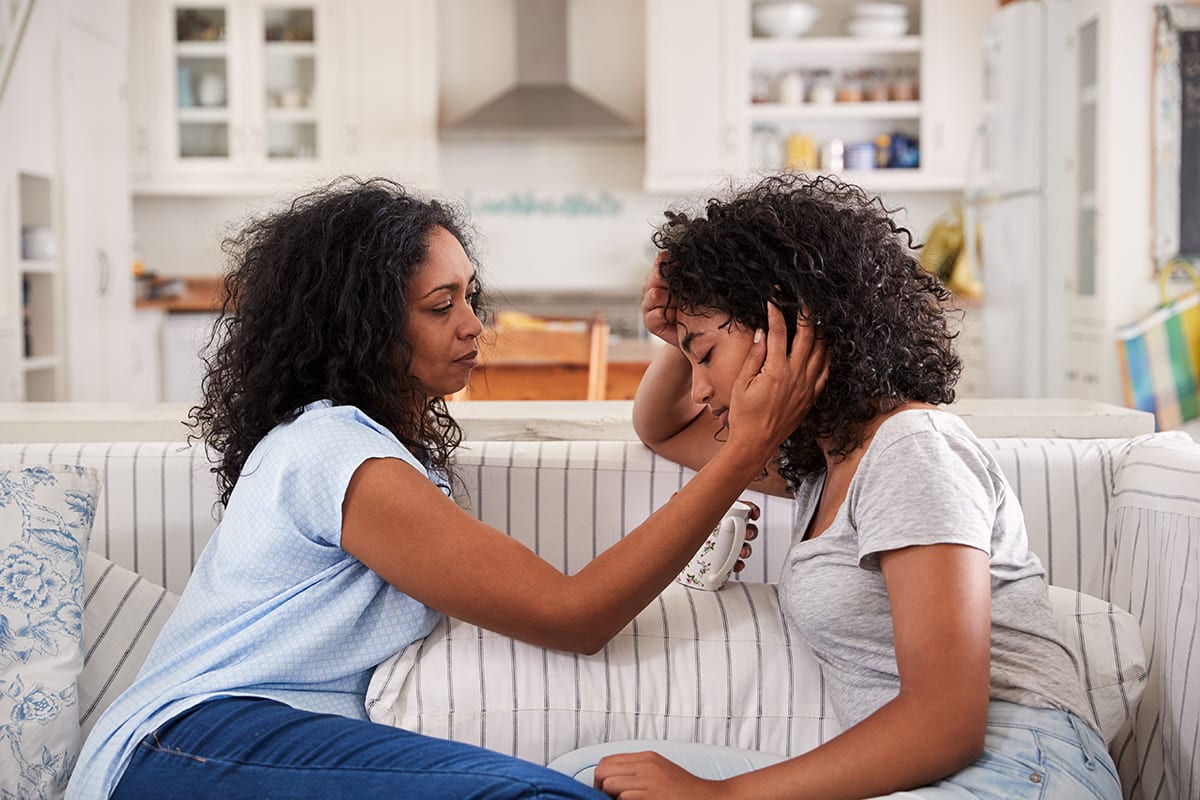
It’s a sentiment our staff at Woodlawn Cemetery hears often from the New York families we serve: “I have no idea what to say to my child about death. I’m not even sure if I should bring them to the funeral. Do you have any advice?”
Many of our neighbors in the Bronx have asked us about the “best” ways to handle this complex and emotional topic. Of course, depending on your faith and views of life and death, each family will handle the conversation differently. That said, this is a topic that needs to be approached in a way your children can understand. This will depend greatly on the child’s age, maturity level, and life circumstances.
Talking to Young Children
 While most young children realize something sad and difficult is going on, they haven’t developed the coping skills for unpleasant events and may react in physical ways. This might include headaches, upset stomachs, or sleep disruptions. In some cases, children will regress by thumb-sucking, bed-wetting, or having tantrums. They may avoid the issue entirely by pretending the person who died has simply gone shopping or on vacation. All of these behaviors are entirely normal.
While most young children realize something sad and difficult is going on, they haven’t developed the coping skills for unpleasant events and may react in physical ways. This might include headaches, upset stomachs, or sleep disruptions. In some cases, children will regress by thumb-sucking, bed-wetting, or having tantrums. They may avoid the issue entirely by pretending the person who died has simply gone shopping or on vacation. All of these behaviors are entirely normal.
It’s best to explain death in short, simple terms. Don’t use euphemisms and clichés to describe the situation. Phrases like “passed away,” “went to sleep,” or “moved on” can be confusing to children. You may find it helpful to give concrete examples, such as, “When animals die, they don’t run and play anymore. When people die, they won’t breathe or eat or feel anything anymore.” It’s common for younger children to view death as temporary and reversible, like they might see on a cartoon. They also tend to be very literal. Do be honest but keep it simple. For example, “Grandma’s body stopped working.” Remember to remain sensitive and patient as they process the loss.
Talking to Older Children
Older children will more fully understand the reality of death as permanent, irreversible, and inevitable – even for them. You can get into more in-depth discussions. Some questions may be difficult to answer, and it’s OK if you don’t know how to respond.
When it comes to attending a funeral or celebration of life, that’s up to each family to decide. A funeral may help a child accept and understand the death better. You may want to explain what will happen at the funeral – what children can expect to see and hear – and then give the child the option to decide if they want to go.
More Helpful Tips
- No matter your child’s age, it’s beneficial to help them find ways to express their grief, such as drawing, music, exercise, or other forms of play.
- Don’t be afraid or nervous to talk about your loved one. After all, research shows that sharing stories and memories helps with healing and closure.
- If you’re concerned about letting your child see you upset or crying, remember that sharing your feelings demonstrates that it’s OK to feel pain and grief after losing a loved one. Learning to express grief and not keep it bottled inside is a lesson that can have a lifelong benefit.
- Take your cues from their behaviors and let your child’s needs be your guide to responding. Answer their questions openly and honestly and continue to be available and supportive.
- Kids need to express themselves to someone they trust, and it’s important to be there for them. Keep in mind that there is no timeline for grief. they will need your ongoing support – not just in the weeks and months following a death – but also in the long term.
Grief is a difficult journey, but together, we can walk alongside each other to work through the emotions in a healthy and productive way. Here at the Woodlawn Cemetery, we see it as part of our mission to help the grieving move toward healing. It doesn’t matter what time of day, or what day of the week you need support, we’re here for you. Don’t hesitate to reach out to us today.
